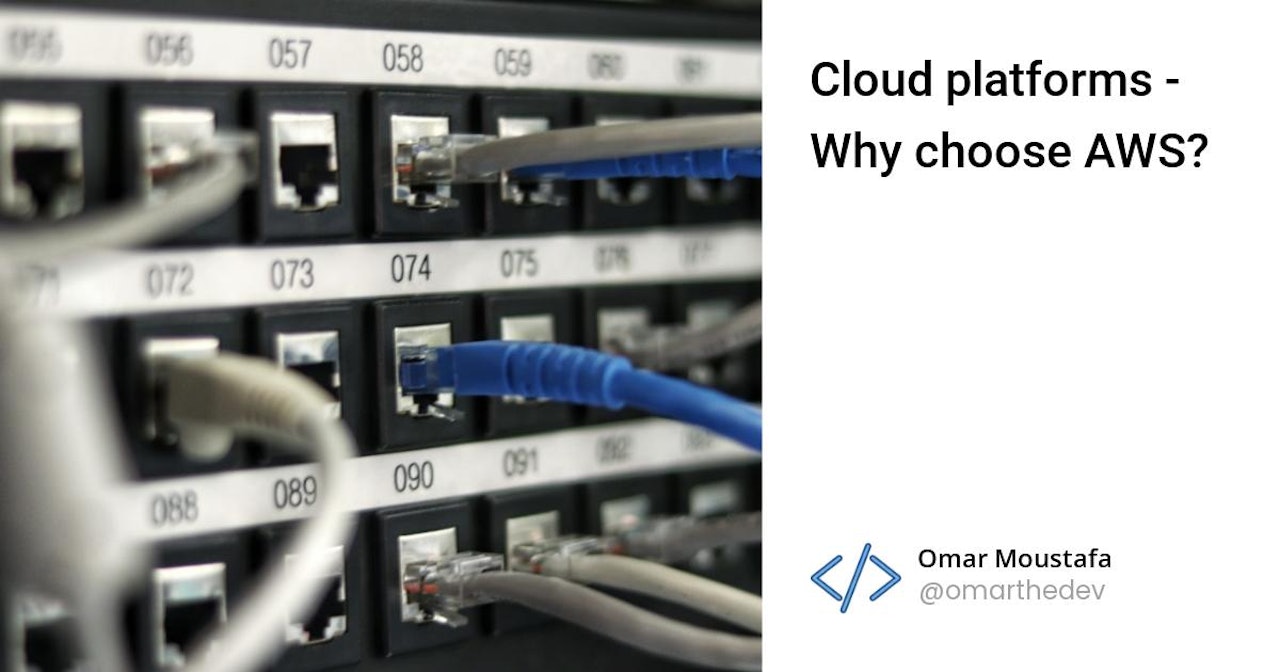Hey there, wherever whom you are and where you are, welcome to this article.
As you had stepped into here, you should be interested about what cloud platform to choose and why especially choose AWS! Doesn't matter you are a business owner, developer, or just a student, this article is guaranteed to help 😀.
So, without wasting my time and yours's too, let's start!
Cloud platform
What is a cloud platform
A cloud platform refers to "the operating system and hardware of a server in an Internet-based data center". They are like a large place which contains many computers used by personal and enterprise users.
Types of a cloud platform
There are several types of cloud platforms which fits for different purposes. Which includes:
-
Public Cloud: Public cloud platforms are third-party service providers that provide computing recourses and more over the internet. Examples are like Google Cloud, Amazon Web Services (AWS), Microsoft Azure, and DigitalOcean.
-
Private Cloud: A private cloud platform is made exclusively for a single organization, or maybe a single person, which no one other uses it expect you or your organization. It's usually hosted (on-site | at your org) or sometimes hosted by a third-party service provider.
-
Hybrid Cloud: Hybrid Cloud is a combination between a Private and Public cloud platforms. Both data and applications seamlessly pass between the two (private and public), which gives the organization more flexibility.
Uses of cloud platforms
Here, we'll just pass an example, and you can seamlessly understand the rest. We are talking about that I have a company/shop website which I would like to host it on the internet. Let's say I own recourses which are enough to host the website and make it fast and such on, and I don't want to use them, or you can also say that you don't have enough recourses to host the website and need to buy the needed recourses with someone who should maintain them and keep them up-to-date.
 View Website
View Website
 View Website
View Website
 View Website
View Website
Here comes the work of a cloud platform, there are many cloud platforms, such as AWS, Azure, Google Cloud, and last but not least DigitalOcean, I recommend AWS, we'll know why later on. AWS has a data center, with many computers (large computers which can do things that a normal computer couldn't do), you can rent a recourse from AWS or the cloud platform you prefer by using 2 common plans:
-
- Pay-as-you-go is a common plan which you can pay as you use the recourses, will never stop unless reaches the limit of money you set or when you manually set it.
-
- And another way to pay is to buy limited use of the recourse, which means you will buy a recourse and use it like for example host a website, and your bandwidth will be let's say 10 GB, when your bandwidth reaches 0, the recourse will stop.
Now we are done of cloud platforms story, let's get on why choose AWS.
Why choose AWS?
AWS is a cloud platform, and it is the best cloud platform in the market with the most highest growth.
AWS certifications are also well-trusted by big tech companies.
We will talk about the most best 7 reasons to choose AWS:
1. Location
One of the biggest AWS advantages is that it is available in 44 different zones in 16 geographical locations. You can access the servers from any country you want to. By hiring an AWS developer, you can access all the features from wherever you are.
2. Recovery System
Another of the most valuable AWS benefits is its disaster recovery system. Custom software development companies offer a solution to recover lost data so that your day-to-day-to-day operations aren't affected.
3. Better Security
AWS, as a cloud service, offers enchanted security to protect your virtual org. The data centers and servers have multiple layers of operational security. The Amazon detective makes security monitoring faster and more reliable.
4. Multi-region Backups
Since the AWS cloud management system is decentralized, you can backup your important data in multiple regions. The platform offers AMIs and EBS snapshots mode of backing up. So even when your primary operational environment goes offline, your backup will not have any impact. You can also schedule backups across different regions.
5. Scalability Factor
Auto Scaling and Elastic Load Balancing are two AWS tools that make scaling easier while delivering high performance. You can scale up or down based on your requirements. Amazon Web Services has a massive infrastructure that can provide computing resources as and when you need them.
6. Pricing Model
One of the top AWS advantages is its pricing model. AWS platform works on the pay-as-you-go pricing model. You don’t have to pay heavy subscription fees for resources that you won’t even use. The flexible pricing structure drastically improves the organizational bottom line, keeping cloud computing affordable for you.
7. Flexibility
Finally, one of the most important AWS benefits is its flexibility. It enables you to select your operating system, programming language, web application platform, database, and other services that you may need. AWS offers a virtual environment to load all the services that your application may require. It also simplifies the data migration process.
Amazon Cloud Business is the Future
All the big tech giants and software development companies use AWS services for their cloud computing needs. You can hire a professional for AWS cloud consulting to identify your computing requirements and how you can integrate your enterprise’s infrastructure with the cloud platform.
Thanks for reading!
Hope you enjoyed the article and I hope it didn't waste your time by either learning something new or choosing what cloud platform to choose.
Have a great day 😁





Comments (0)